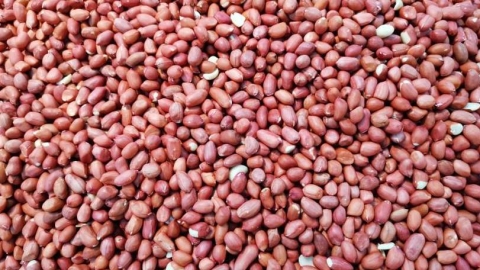What Are the Benefits and Risks of Women Eating Peanuts Frequently?
Women can obtain nutrients from regularly eating peanuts, but there are also risks involved. Benefits generally include supplementing high-quality protein, providing unsaturated fatty acids, supplying vitamin E, intake of dietary fiber, and replenishing minerals. Disadvantages typically include causing excessive calorie intake, triggering digestive discomfort, increasing allergy risks, affecting blood lipid levels, and potentially加重 gallbladder burden. A detailed analysis is as follows:

I. Benefits
1. Supplement High-Quality Protein: Peanuts are rich in plant-based protein, with amino acid composition close to human needs. They provide raw materials for body tissue repair and metabolism, helping maintain muscle mass and physiological functions.
2. Provide Unsaturated Fatty Acids: Rich in monounsaturated and polyunsaturated fatty acids, which help regulate lipid metabolism in the body, provide energy for daily activities, and benefit cardiovascular health.
3. Supplement Vitamin E: Contains a certain amount of vitamin E, a fat-soluble vitamin that participates in the body's antioxidant processes, supporting skin health and cellular protection.
4. Intake of Dietary Fiber: Both peanut skins and kernels contain dietary fiber, which can promote intestinal motility, increase stool volume, help maintain normal intestinal function, and reduce problems with bowel movements.
5. Supplement Minerals: Contains minerals such as magnesium, potassium, and zinc. Magnesium helps maintain nerve and muscle function, zinc participates in physiological metabolism, and potassium helps maintain fluid balance.
II. Disadvantages
1. Excessive Calorie Intake: Peanuts are high in calories and fat; excessive consumption can easily cause daily calorie intake to exceed limits, potentially leading to weight gain or obesity over time.
2. Digestive Discomfort: Rich in protein and fat, excessive consumption by individuals with weak digestion may lead to symptoms such as bloating, belching, and indigestion, increasing gastrointestinal burden.
3. Increased Allergy Risk: Peanuts are a common allergen. Individuals with allergic constitutions may experience allergic reactions such as rashes, difficulty breathing, and abdominal pain after consumption, which can be severe enough to endanger health.
4. Impact on Blood Lipid Levels: Although they contain unsaturated fatty acids, the total fat content is high. Long-term excessive consumption without adequate exercise may lead to elevated blood lipid indicators such as triglycerides.
5. Potential加重 Gallbladder Burden: Fat digestion requires bile; individuals with poor gallbladder function or a history of cholecystitis may experience gallbladder stimulation and contraction from frequent peanut consumption, potentially triggering discomfort.
Control portion size when consuming peanuts; a small handful per day is recommended. Choose plain, non-fried varieties whenever possible. Individuals with allergies or gallbladder disease should avoid consumption. If persistent bloating, rash, or other discomfort occurs after consumption, stop immediately and seek medical attention.




